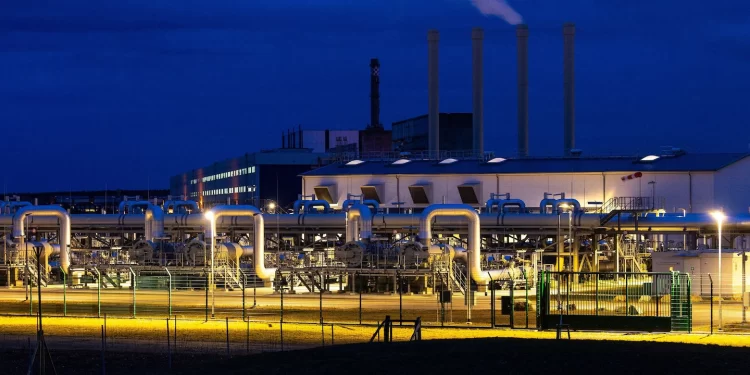Energiewende is the stereotypically polysyllabic moniker Germany got here up with for its bold national policy aimed toward decreasing carbon emissions 65 % by 2030 in contrast with 1990 ranges, and 88 % by 2040. Roughly translatable into English as “vitality transformation,” the Energiewende has already value Germany many billions of {dollars}; cumulative funding in renewables is on the right track to hit $580 billion by 2025. Germany has made important progress, with 2021 emissions 38.7 percent below 1990 levels. And but the Germans have made every little thing more durable for themselves by pursuing a carbon-free future with out resorting to nuclear energy. In actual fact, a key side of the Energiewende is a complete phaseout of this zero-carbon vitality supply by the tip of this 12 months. By no means clever, this coverage has been uncovered as an outright catastrophe by the struggle in Ukraine and ensuing abandonment of the gasoline that was presupposed to take nuclear’s place throughout the broader transition: Russian pure fuel.
For its personal sake and for the sake of the broader European financial system, Germany should reverse course and retain nuclear energy. As an preliminary step, that will imply maintaining its final three remaining reactors, which nonetheless produce about 6 % of the nation’s complete electrical energy, in operation previous Dec. 31. Then Berlin should discover methods to extend its nuclear vitality functionality, which in March 2011 consisted of 17 reactors, producing one-quarter of all German electrical energy. That was when the federal government then led by Chancellor Angela Merkel — reversing a promise on which she campaigned in 2009 — determined to zero out the reactors by 2022 in overreaction to a public panic over the Fukushima accident in Japan. As that sequence of occasions suggests, Germans’ attitudes towards nuclear energy have been unusually and irrationally anxious towards this expertise, which of their nation has by and enormous compiled a superb security file. The Inexperienced Occasion, a key member of the present coalition authorities, grew out of the anti-nuclear motion within the Nineteen Seventies.
For all these causes, will probably be tough for Berlin to do what is true and vital now. Luckily, a brand new development in German public opinion appears to be making it politically attainable. A July ballot found that 70 % of Germans favor maintaining the nuclear vegetation in operation for a minimum of a while previous Dec. 31. An August survey found that solely 15 % help finishing the phaseout this 12 months, with 41 % supporting an extension “for some months” and 41 % favoring “long-term” continuation. This creates a gap for Chancellor Olaf Scholz, a Social Democrat; he not too long ago mentioned that extending operation of the final three nuclear vegetation “would possibly make sense,” pending a “stress take a look at” of the amenities. Since Russia’s invasion of Ukraine threw Europe into disaster, Mr. Scholz has proven a bent to oscillate between daring coverage departures — he promised to spice up German navy spending — and reversion to warning; he slow-walked weapons shipments to Ukraine. On nuclear vitality coverage, the occasions name for Mr. Scholz to get again in contact along with his daring aspect.
The Submit’s View | Concerning the Editorial Board
Editorials symbolize the views of The Washington Submit as an establishment, as decided by means of debate amongst members of the Editorial Board, based mostly within the Opinions part and separate from the newsroom.
Members of the Editorial Board and areas of focus: Deputy Editorial Web page Editor Karen Tumulty; Deputy Editorial Web page Editor Ruth Marcus; Affiliate Editorial Web page Editor Jo-Ann Armao (training, D.C. affairs); Jonathan Capehart (nationwide politics); Lee Hockstader (immigration; points affecting Virginia and Maryland); David E. Hoffman (international public well being); Charles Lane (overseas affairs, nationwide safety, worldwide economics); Heather Long (economics); Molly Roberts (expertise and society); and Stephen Stromberg (elections, the White Home, Congress, authorized affairs, vitality, the setting, well being care).










